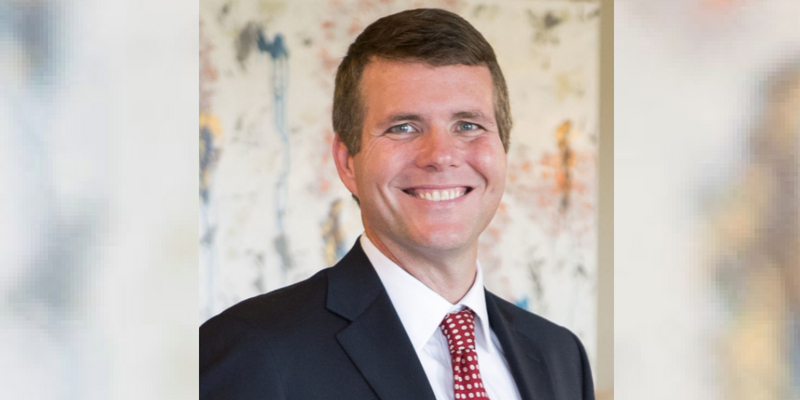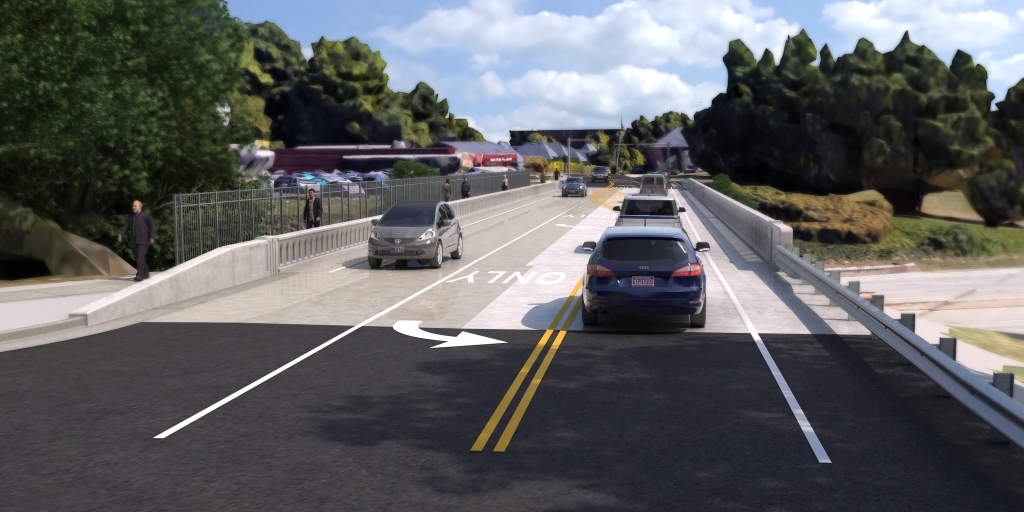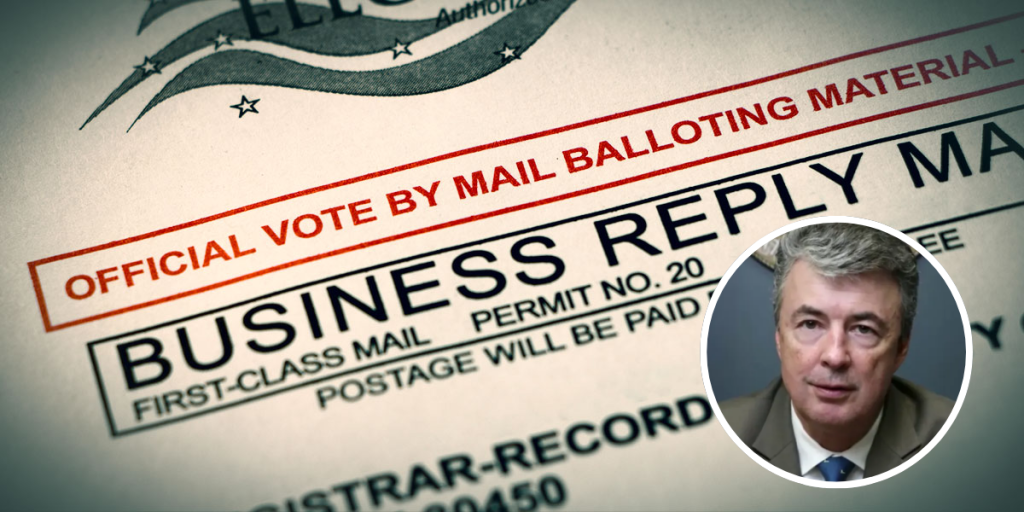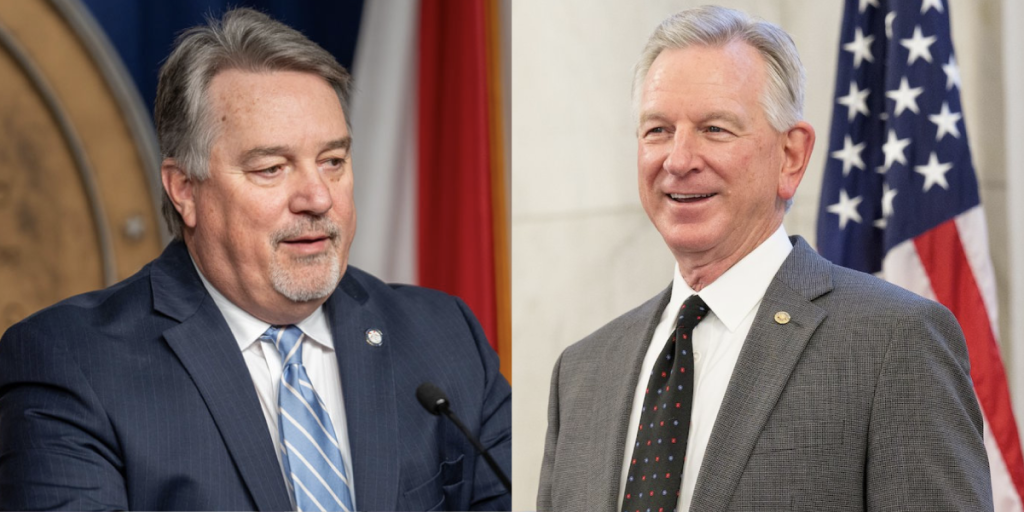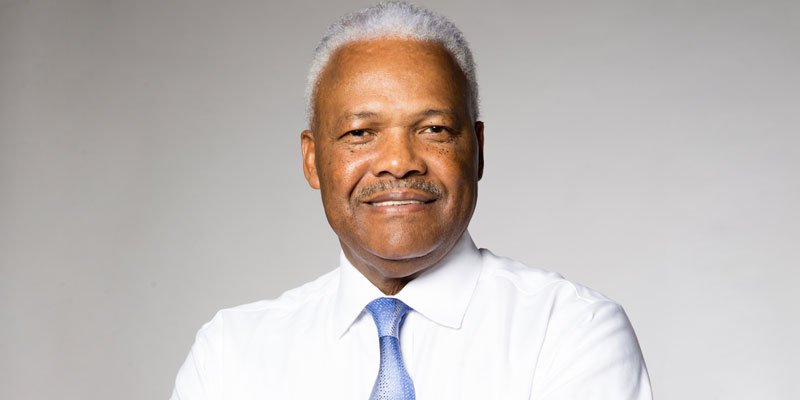Tuscaloosa Mayor Walt Maddox, a candidate for the Democratic Party’s nomination for governor, recently responded to the questionnaire prepared by the Alabama Policy Institute and Yellowhammer News. His answers are below.
POLITICAL PHILOSOPHY AND PRINCIPLES
Question: What is your political philosophy and, if elected, how would it shape the way you govern?
Maddox: — I believe in effective and transparent government based on sound policies, and ethical leadership that relies on best management practices.
— I offer Alabama a New Covenant where our leaders wake up every day ready to fight for the people without regard to party. By placing results above rhetoric, we will forge a way forward that will make a real difference in the issues facing Alabamians.
— My approach to policy proposals is to identify the issues, opportunities, and problems related to making Alabama better; learning all relevant facts; establishing policy goals that serve Alabama citizens; cataloging potential policy alternatives that support those policy goals; balancing the interests of all parties affected; and then through careful analysis determining the best policy moving forward.
How have you demonstrated your commitment to your political philosophy?
— As Mayor of Tuscaloosa, this approach to transparent and effective government has been part of my everyday practice in serving the people for almost two decades. Important data is posted on the web, policy initiatives are discussed openly in public meetings that are webcast and archived, the concerns of stakeholders are heard and considered, and policies are implemented in a fair and equitable manner.
— The Tuscaloosa Forward Plan that was developed in the recovery from the tornado of April 27, 2011 is an excellent example of how I see solutions to problems being developed by bringing all stakeholders together with experts and area leaders, to sort through what was often competing interests with both short and long term components, to find solutions that best meet the needs of the entire community.
What is the most important role of the governor?
— The governor must first and foremost fulfill the constitutional oath to support and defend the constitutions of the state of Alabama and of the United States, acting as the chief executive officer of the state to see that the laws are faithfully executed.
— Equally important, the governor must be a leader in proposing laws and policies that benefit all of Alabama, and be the face of the state who takes responsibility for its direction, progress, and even mistakes.
What is the most challenging social issue facing families in Alabama? Does government have a role in helping to solve that problem, and if so, what would you propose?
— Perhaps the best answer is to identify the common theme underlying the solutions to most of Alabama’s problems: they are opportunities for economic development. The expansion of Medicaid will not only provide insurance to our most vulnerable citizens, it also will stoke our healthcare industry with more high paying jobs and creation of advanced medical treatments. The Alabama Education Lottery will instill $300 million new dollars per year into Alabama’s economy even as it improves workforce development, making Alabama more attractive to new industries. Fixing our roads and bridges will not only make us safer, it will create jobs both directly through highway construction, and more importantly by providing the quality infrastructure that new factories and businesses look for in site selection.
Alabama has four abortion clinics operating across the state, and Planned Parenthood has announced plans to build a new clinic in downtown Birmingham. How do you feel about these clinics and what would you do as governor about any taxpayer funds they receive?
— I’m a pro-life Democrat who is concerned that many Republicans are more pro-birth than pro-life. Perhaps Sister Joan Chittister best summed up my feelings when she said “I do not believe that just because you’re opposed to abortion, that that makes you pro-life. In fact, I think in many cases, your morality is deeply lacking if all you want is a child born but not a child fed, not a child educated, not a child housed. And why would I think that you don’t? Because you don’t want any tax money to go there. That’s not pro-life. That’s pro-birth. We need a much broader conversation on what the morality of pro-life is.”
— Although I am personally opposed to abortion, under the law of the land a woman has a right to choose up until the point of fetal viability. The federal Hyde Amendment prohibits use of federal funds to pay for abortions except those that endanger the life of the woman, or that result from rape or incest, and Alabama law does not provide any state funds for abortions. The courts will ultimately decide which of Alabama’s several laws regulating abortion are constitutional, including any restrictions on new abortion clinics. As a governor sworn to uphold the federal and state constitutions and the laws of Alabama, I will faithfully execute Alabama’s laws within the constitutional limits defined by the Supreme Court.
EDUCATION
PUBLIC EDUCATION
Alabama is ranked number forty-seven on U.S. News and World Report’s list of Best States for Education, and ranked number 1 in Pre-Kindergarten quality. As far as public education reforms, there have been many suggestions for improvement including increased investment in STEM education, distance learning, and reforming teacher tenure. What reforms would you propose or support to improve public education and prepare Alabama’s children for school success and lifelong learning?
— Initiatives for reform arise from good intentions, but they all run head on into a major problem: chronic underfunding. My proposal for the Alabama Education Lottery will infuse Alabama with $300 million new dollars annually, to be spent in four major areas: Universal First Class Pre-K, to extend Alabama’s top tier Pre-K program to all of our children instead of less than a quarter or a third of 4-year olds; The Foundation Program Promise, which will help close the funding gap between schools systems with fewer resources and those with more; Community Innovation Grants, which will provide wrap around services to address problems like mental health and poor family environments which prevent learning; and College Scholarships and Workforce Readiness, which will be there for our high school graduates to lift themselves even higher.
ALABAMA STATE BOARD OF EDUCATION
Dr. Eric Mackey was recently named Alabama’s next State Superintendent of Education. The governor serves as a voting member of the Alabama State Board of Education. What vision for Alabama do you share with the new superintendent and where do your philosophies differ? How will you prioritize Alabama’s school children in your role on the Board?
— I look forward to working with Dr. Mackey and learning more about his philosophy of education. I agree with much of what I know about him, that Alabama needs long-term solutions instead of quick fixes, and that education curricula must be more rigorous, with an emphasis on preparing students for a 21st century economy based on information and technology. I admire his work in helping make Alabama Pre-K a highly respected program, which still needs to be expanded statewide. I will expect Dr. Mackey to elevate Alabama’s public schools. That starts with closing the funding gaps between schools where property values are high and rural schools which struggle. Our schools also need more wrap around services because health, mental health, and social problems all stand in the way of learning. My Alabama Education Lottery will address all these issues as well as send more students to colleges, universities, and work force training.
SCHOOL SAFETY
The recent school shooting in Parkland, Florida reignited the discussion about school safety. President Trump has suggested arming teachers while others have argued for increased use of school resource officers and funding for mental health programs. As governor, how would you ensure the safety of Alabama’s children in public schools?
— My School Safety Plan was released earlier this year and calls for five areas of action. (1) We must harden our schools through better design standards, use of technology, and the presence of armed law enforcement security officers. (2) Faculty, staff, and security officers at all schools must be trained in the proper reaction to active threats. (3) Ban weapons at schools except those possessed by trained security personnel. (4) Develop protocols to identify and act upon potential attackers. (5) Support reasonable gun control measures like universal background checks, higher age limits for the purchase of assault weapons, and keeping guns out of the hands of criminals, the mentally ill who are a danger to themselves or others, and those on the terrorist watch list.
SCHOOL CHOICE
In 2015, Alabama became the 43rd state to approve legislation to authorize charter schools. Many states now allow parents to transfer their child from a failing public school to a non-failing public school, to utilize education savings accounts or school vouchers, or to send students to alternative schools using tax-credit scholarships, allowing parents greater control in their child’s educational endeavors. How should school choice fit into Alabama’s education system?
— I’m certainly for better schools but charter schools and use of public funds for private schools don’t appear to be the answer their advocates claim. Rather they’re just another source of controversy and a diversion of public funds from school that are already underfunded. What I’d prefer to see is all the momentum and energy behind advocating for school choice be put into making all our public schools better. Many of the ideas behind alternative schooling can be generalized, but this should be done within the system that serves all public school children.
FISCAL RESPONSIBILITY
TAX CODE
In Alabama, the bottom 20% of earners pay 10% of their income in state and local taxes while the top 1% only pays 3.8% of their income in the same taxes. If elected, what would be the future of the state income tax and do you see this disparity as a problem?
— Alabama’s regressive tax structure problems involves more than just its income tax. Powerful land owners have long successfully lobbied to keep property taxes low. This in turn causes an unhealthy dependency on income, sales, and other taxes, which for the most part are not distributed according to wealth or ability to pay. Once Alabama is ready to have a serious discussion with itself and face the truth, it will be possible to enact revenue neutral tax reform that distributes the burden of operating state and local governments in alignment with how wealth is distributed. Those with an interest in keeping the current system falsely characterize such tax reform as tax increases or redistributions of wealth, and it is that perception that we must overcome before reforms win the support of the people.
STATE AND LOCAL TAXES
According to the Institute for Taxation and Economic Policy, Alabama boasts the 12th most regressive state and local tax system in the nation. One contributor to this ranking is our combined 9% grocery tax (only four states tax groceries more than Alabama). In 2017, Governor Bentley proposed decreasing the grocery tax by 4%. If you are elected, would you suggest changes to the grocery tax?
— I support eliminating the state sales tax on groceries. But to do so we must offset the lost revenues with another source. One idea is to eliminate the state deduction for federal income taxes, which would require a constitutional amendment to be voted on by the people. Unfortunately, at the local level, state law limits sources of revenue municipalities and counties can adopt, which would make eliminating local sales taxes on groceries impossible unless a new source of revenue replaces it. We must look at ways to free up the dependency of local governments from sales taxes so that all taxes on groceries can be eliminated.
INFRASTRUCTURE INVESTMENT
US News ranks Alabama’s roads and bridges as the 16th and 21st best in the country, respectively. Even so, every neighbor of ours—except Mississippi—has roads and bridges that rank in the top 10. Alabama also ranks 45th in terms of broadband access. If elected, what would you prioritize as the most important infrastructure investment projects, and what innovative options would you propose to fund such projects?
— I support the plan put forth by the Alliance for Alabama’s Infrastructure, which was founded by the Business Council of Alabama, Chambers of Commerce across the state, businesses, industry associations, and professional groups – all of whom understand that quality roads and bridges are critical to improving Alabama’s economy. Not only must we take a long, hard look at our decreasing fuel tax revenues, which today bring in the equivalent of 35 cents per gallon less than in the mid-1990s, we also must look toward the future as hybrid and electric vehicles continue to cause the same wear and tear on roadways while paying less in fuel taxes. We get what we pay for, and right now we’re paying for roads and bridges that become more dangerous every day and are less attractive to new industries.
STATE-RUN LOTTERY
Most states resort to installing a state-run lottery to increase revenue and pay for government projects. Do you support a lottery to solve the state’s fiscal woes? Why or why not?
— The Alabama Education Lottery is a cornerstone of my campaign. It will bring in $300 million every year to make college more affordable for Alabama students, expand Pre-K to every child in the state, provide wrap around services to address health, mental health, and social problems that prevent learning, and close the funding gap between school systems in high and low property value districts.
THE RIGHT TO WORK
JOB CREATION
The Census Bureau suggests that Georgia, Florida, and Tennessee are creating more jobs than Alabama. As governor, how would you foster job creation that rivals our neighbors to the north, east, and south?
— The first thing we must do is get our workforce ready for jobs of the 21st century. This is an employer’s number one concern and so it should be our number one priority. The Alabama Education Lottery will provide funding for workforce development and apprenticeships as well as higher educational attainment, and restructuring our workforce development efforts to be more effective and efficient will make every dollar invested in our future count. Second, we must rebuild our crumbling roads and bridges. Economic development cannot happen if new businesses and industries have no confidence that essential transportation infrastructure will be in place. Alabama is blessed with a strong work ethic, abundant natural resources, and a geographic location that puts us in position to lead the south in job and wage growth. All we need are the missing pieces of the puzzle that have been neglected for too long.
ROLE OF LABOR
Alabama is a right-to-work state. In your opinion, what is the proper role of organized labor and should Alabama remain a right-to-work state?
— I support the right of labor to organize. The minds and muscles of Alabama workers are the backbone of all our industries, and those workers have a legal right to unite for the betterment of them all. Unions have done so much to help wage growth and job safety of working people. Understanding this, in 2016, Alabama voters included right to work as part of our constitution. Therefore, so long as it remains the law of Alabama, as governor I will be sworn to uphold the individual rights of all workers, even as I continue to support the right of workers to unite for their common good.
OCCUPATIONAL LICENSING IN ALABAMA
The state of Alabama licenses 151 different occupations and over 20% of Alabama workers need a license to work. If elected, how would address these regulations—regulations that both the Obama and Trump administrations have regarded as problematic?
— Much of Alabama’s occupational licensing structure is an inconsistent, ad hoc, unreasonable mess. Licensing should be about assuring only that individuals who perform services to the public are qualified and properly regulated, and should not be an income generator that squeezes money out of multiple layers of the same business and falls disproportionally on lower wage jobs. We should start with common sense reforms. Many lower level licenses can be subsumed by license holders who are responsible for their performance. For example, there’s no need to require a license to shampoos someone’s hair when a licensed cosmetologist is responsible for 100% of the training, approval, and supervision of the person doing the shampoo. We must eliminate duplicative and unnecessary licensing boards. We must align fees for licenses that legitimately have rigorous standards with the costs of administration.
CRIMINAL JUSTICE
OPIOID EPIDEMIC
According to the CDC, Alabama is the state highest-prescribed with opioids, with more prescriptions than people. Opioids are the main driver of overdose deaths and, in 2016, 756 Alabamians died from drug overdoses. As governor, how would you tackle Alabama’s share of this national crisis?
— The expansion of Medicaid is a major first step in overcoming many of Alabama’s problems, including opioid and other drug abuse. The expansion will increase the availability of and access to treatment and counseling that we so desperately need. We also need to improve prescription drug monitoring and make medical treatments more widely available, like Suboxone, which alleviates the pain of opioid withdrawal but is too expensive for most to afford without assistance. Detox units, residential and outpatient services, consultation among addiction specialists and other providers must be expanded. UAB’s Addiction Recovery Program provides an effective model that can be replicated statewide for a medically supervised approach to early sobriety including intensive therapy, 12-step fellowship, trauma and grief work, and family support. Overdose remedies like Narcan must be widely available to both emergency first responders and the general public. We must implement common sense initiatives like warm handoffs so that people who seek emergency medical treatment for drug overdoses are automatically connected to a treatment program – and, of course, that begins by making sure treatment programs are available.
CRIME PREVENTION
Alabama has the third highest murder rate in the country. As governor, how would you address crime and what policies, specifically, would you propose?
— The governor should meet with leaders in law enforcement and experts in criminal conduct to find the most effective ways to reduce crime, with consideration given to such approaches as keeping children in school longer – a proven deterrent to criminal behavior; identification of threats in the community; behavioral intervention programs; using technology tools that detect patterns of criminal behavior and provide evidence to make arrests; providing our youth with opportunities for learning skills, recreation, and service to the community as alternatives to drugs and crimes; hot spot and focused policing – faster reaction to crime trends to proactively stop crimes from being committed; eliminate blighted housing; community policing; and responsible and reasonable gun laws.
PRISON REFORMS
Alabama has received national attention for the state of its prisons and a federal judge recently called inmate care “horrendously inadequate”. How would you address this issue, and do you support the use of private prisons?
— Alabama’s prison system is driven largely by court order or continuing efforts to stave off court orders, and private prisons are a pathway to even more headaches. Nobody likes to talk about prisons, but it is our duty as a society to provide safe and secure prisons that comply with standards of human decency while also serving their punitive purpose. Our prison system is severely overcrowded and are at risk for federal court takeover. We are not rehabilitating our prisoners or treating those with mental health problems, which puts them at high risk to commit further crimes and return to prison. Once we embrace the fact that 90% of prisoners will one day return to society, then perhaps we can accept the fact that rehabilitation of prisoners – with educational opportunities, job skill training, and mental health and drug abuse treatment – is just as important as meting out punishment for the crime.
CIVIL ASSET FORFEITURE
Some states are eliminating provisions that allow police to seize property without securing a criminal conviction. Do you support the use of civil asset forfeiture by law enforcement and the provision that allows agencies to keep the proceeds of seized property? Why or why not?
— Civil asset forfeiture can be an effective tool in combatting drug trafficking. However, there are too many stories about people who are never charged with crimes falling victim to the relatively low standards for seizing property when there is a mere suspicion of criminal activity. I believe in the 2nd amendment, but I also believe in the due process clause of the 14th But before we eliminate what can be an effective law enforcement tool, we need to gather evidence of how Alabama law enforcement agencies are using civil forfeitures. Therefore, I support the bill that failed in the last legislative session to require detailed reporting by law enforcement agencies as to how and when assets are seized, the suspected crime underlying the seizure, how the funds or assets are used by the agency, whether there was ultimately a conviction in the case, and similar data. We also need to consider whether funds from forfeited assets should continue to go to the law enforcement agencies or instead into the general funds of state and local governments. This would remove the so-called profit motive from law enforcement. We must work toward the day when assets are not seized unless there’s strong assurance they were used in criminal activity, ideally only after a conviction. Gathering data so that we may formulate strategies that fight crime effectively while retaining fundamental fairness in our justice system is the best start.
The Alabama Policy Institute, headquartered in Birmingham, is an independent, nonpartisan, nonprofit research and educational organization dedicated to strengthening free enterprise, defending limited government, and championing strong families. To learn more about their work and how you can help, please visit alabamapolicy.org.




